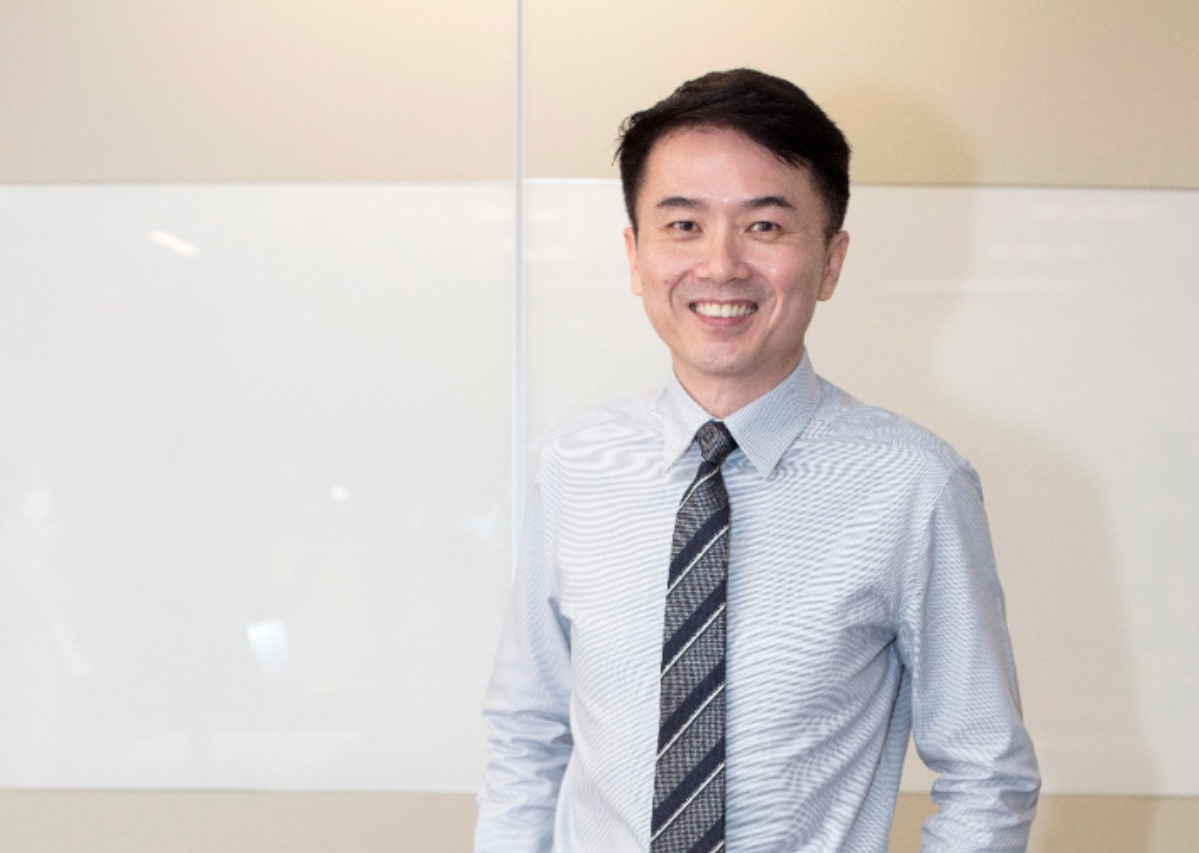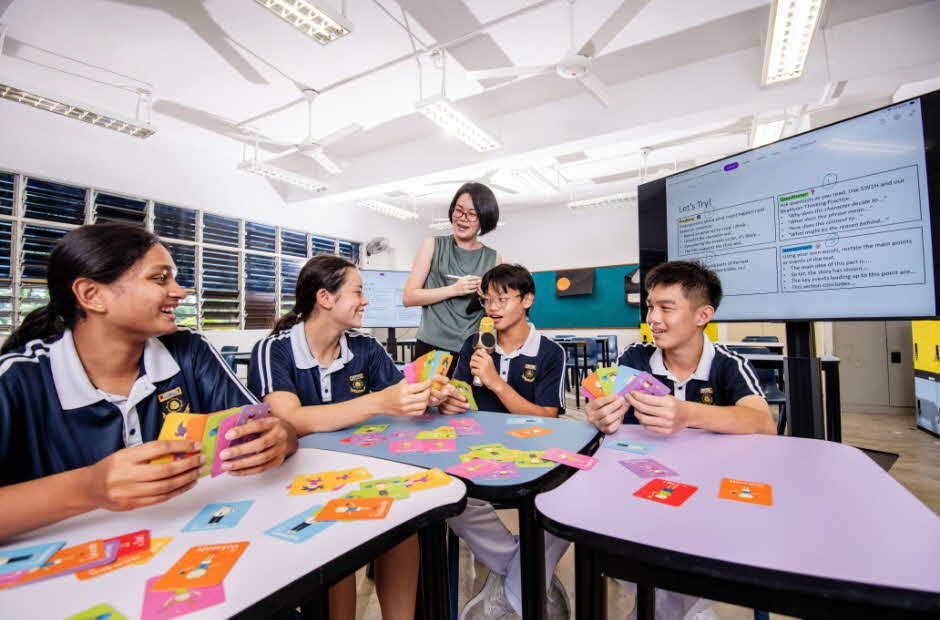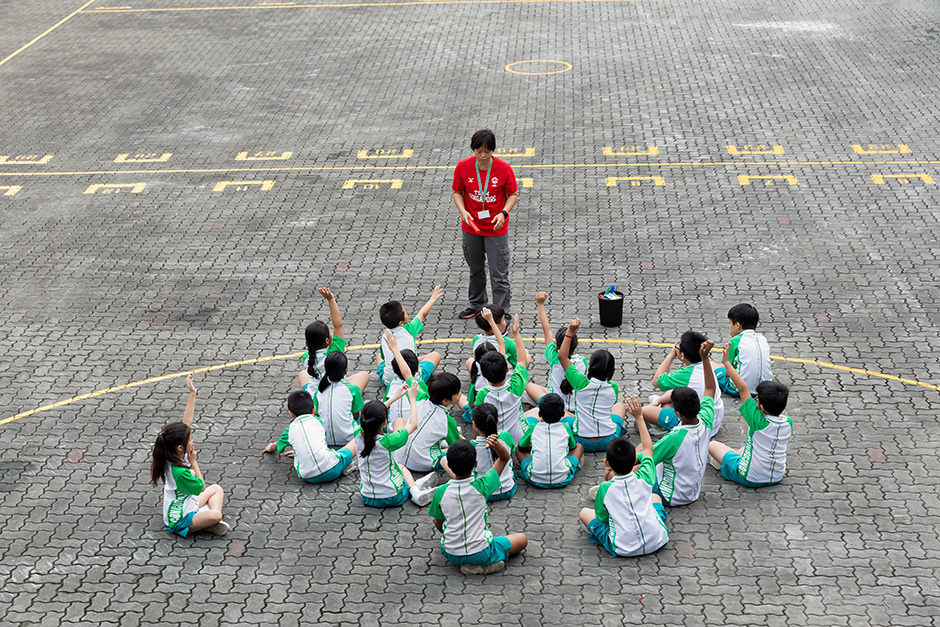Mr Javihn Chan Lih Wei , Ngee Ann Polytechnic, President’s Award for Teachers 2020 Finalist
Javihn Chan Lih Wei looked around at his teary-eyed students.
The six Diploma in Business and Social Enterprise students had just concluded a fun-filled event for 10 families with children who were chronically ill. To give the caregivers some much-needed respite, they had worked hard all day leading the children in arts and craft activities and games, entertaining the children with performances and serving them food.
The event was a hit. But after the guests had departed, the entire team broke down in tears.
When he asked why they wept, their replies showed that they were tears of compassion for the challenges that the children and caregivers face each day of their lives and the courage that they display.
They were also angry tears that society is not doing more to reduce these challenges for them. One team member was upset that a wheelchair guest had to struggle just to get to the event venue.
Recalled Javihn, “He said that more thought should have been put into designing access to the campus. I knew in that moment deep learning had taken place.”
Javihn is the Senior Education Specialist and lectures Business Management, Entrepreneurship and Macroeconomics in Ngee Ann Polytechnic and he sees his mission clearly: “Our aim is to develop passionate learners, big-hearted persons and global-smart professionals. Not just people who are competent, but who also have a big heart for society.”
He added, “It is imperative that students do not see business as merely profit-driven entities but also as opportunities to apply their entrepreneurial skills towards creating social change. Millennials tend to be described as a very self-centred generation and it is a huge breakthrough when they can see beyond themselves. When they do, they can make a change to society. And I would have succeeded in my mission.”
Growing Into Passionate Advocates
For his students, the journey is certainly a rich one that unfolds in stages. The first stage is when they become aware of the issues, challenges and gaps in society. The second, when they act to address these issues.
By the end of the third year, said Javihn, students become a voice for these issues and begin to see that their actions can make a difference.
“I will see more and more of my students volunteering for different social causes in their free time. Not all students move through these three levels. But all will have gained new awareness of societal issues. And some 10% to 20% go on to become passionate social advocates and a voice for certain communities.”
“I think that as long as one student is willing to make a change to society, I have done something. As for the rest, I am certain that they will make a difference in their own sphere of influence.”
Because Business Is Everywhere
Javihn firmly believes that issues and gaps in society can be addressed by businesses with a heart. For instance, businesses should consider the people they are serving or their impact on the environment. They can provide skills training to disadvantaged people and help uplift livelihoods, he said. “We can go beyond making profit to making a difference to the community and the system.”
This fits with Ngee Ann Polytechnic’s drive towards Service-Learning, and the Diploma’s goal to produce graduates with the know-how to create successful social enterprises. That includes arming graduates with business skills relevant to the social and community development sectors.
As Javihn puts it, “I can just teach academic knowledge and skills and they would graduate. But why not let them acquire civic consciousness and personal development at the same time through the design of the projects they do?”
Experiencing the Impact
The first step towards realising that goal is getting students to believe that they can make a difference.
Service-Learning is the main pedagogical approach that helps them achieve this, said Javihn. Here, students take on projects that meet real community needs –including the elderly, people with disabilities, youth at risk and low-income families.
“The common refrain I hear from my students is, “I am only a student, what can I do?” But by achieving success in projects on the ground, they see that their actions can have a direct impact on the community.”
“This strengthens their belief that they can be agents of change. It also strengthens their belief that no one is too small to make a difference to society.”
It is learning by doing. “When the students are out there doing it, they better understand concepts taught in the classroom. This learning is very valuable and is something textbooks can’t teach.”
Room for Reflection
Another tool that Javihn employs is the practice of reflection. Observed Javihn, “There’s this saying, ‘we learn from experience’; but I think we learn from experience only if we pause and reflect about the experience.”
After each assignment, Javihn asks his students to write down their experience, including why they responded in certain ways. The students then ponder the significance of the experience. This usually surfaces underlying issues that should be addressed.
Finally, the students reflect on the changes they are going to make, in how they think or act moving forward.
A useful tool to get students to reflect deeply is Perusall, a reading app developed by Harvard University. Javihn’s students use the e-reader to post their opinions and thoughts and to build on others’ questions and viewpoints, thereby extending the exchange of ideas with peers.
“Perusall spurs conversations on particular issues, which encourages reflection. It creates a community of learners. This is entirely different from trying to understand a piece of text by reading it on your own.”
In his effort to create this community of learners, Javihn has been championing the app with fellow lecturers – and several colleagues from other schools in the polytechnic, like the School of Design and Environment, have picked it up.
Perusall also offers teachers valuable insights through data. The app records data such as how many times a page has been read and how long students linger on certain pages. These data allows Javihn to analyse the learning patterns and behaviours of the students and helps him be more targeted in his interventions. “I can zoom in on the interesting pages to engage deeper learning or points of confusion to unblock learning challenges. It also helps me to be more productive.”
Affirm, Challenge And Support Your Learners
Javihn knows that real-life experience – in business or community work – is critical for his students, and is essential for them to build the skills to navigate the complexities in the real world. “Out there in the community, things are fluid and learning is chaotic.”
“But they are growing up in a world with big problems like racial discrimination and environmental damage. Being exposed to these issues early, they will start to think about them.”
Jeremin Sng Ming Cai can testify to that. Last year, the Business and Social Enterprise student shadowed a Bangladeshi cleaner to better understand the lives of migrant workers in Singapore. This was his service learning assignment and he had to sweep void decks and wipe down lifts in a HDB estate as well as interview the cleaner.
The experience was a powerful one for Jeremin. He gained new respect for the migrant workers in Singapore, an understanding of their struggles, as well as a new appreciation for the things in his life.
All along, Javihn has supported his student. This is typical of him, says Jeremin. Whether his students are knocking on doors to help youths at risk, or hauling tables, chairs and sound system for student projects, Javihn is there.
Said Jeremin, “He is more than a lecturer; he is like a father. He goes through thick and thin with us. When we do assignments and projects, he will be there. You can see the passion in him because he does everything with great love.”






